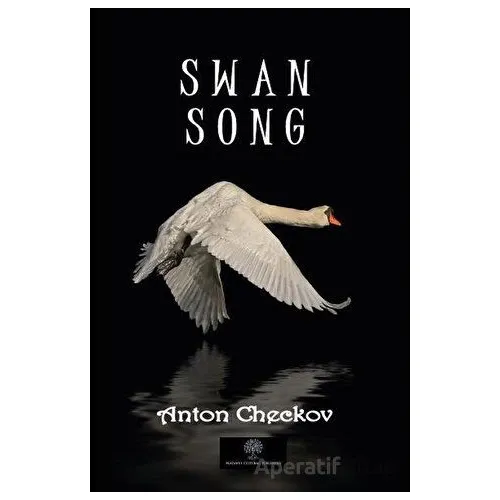Swan Song - Anton Checkov - Platanus Publishing
Hiç mesaj bulunmadı
| Taksit | Tutar | Toplam |
|---|---|---|
| Tek Çekim | 131.60 TL | 131.60 TL |
| 2 Taksit | 65.80 TL | 131.60 TL |
| 3 Taksit | 45.62 TL | 136.86 TL |
| 4 Taksit | 34.55 TL | 138.18 TL |
| 5 Taksit | 27.90 TL | 139.50 TL |
| 6 Taksit | 23.47 TL | 140.81 TL |
| Ödeme Türü | Toplam Tutar |
|---|---|
| Diğer Kredi Kartları | 131.60 TL |
| Havale / Eft | 131.60 TL |
| Posta Çeki | 131.60 TL |
| Kapıda Ödeme | 146.60 TL |
Kapıda ödemeli siparişlerde +15,00TL kapıda ödeme hizmet bedeli ilave edilir. | |
- Vade farksız taksitler KOYU renkte gösterilmektedir.
- X+X şeklinde belritilen taksitler (Örneğin: 2+3) 2 taksit olarak işleme alınmakta ancak ilgili bankanın kampanyası dahilinde 2 taksit üzerinden işlem yapıldığı halde 2+3 yani 5 taksit olarak kartınıza ve ödemenize yansımaktadır. (2 taksit seçilmiş olsa bile banka kampanyası dahilinde ekstradan vade farkı eklenmeden işlem 5 taksite bölünmektedir.)
Swan Song - Anton Checkov - Platanus Publishing
THE last years of the nineteenth century were for Russia tinged with doubt and gloom. The high-tide of vitality that had risen during the Turkish war ebbed in the early eighties, leaving behind it a dead level of apathy which lasted until life was again quickened by the high interests of the Revolution. During these grey years the lonely country and stagnant provincial towns of Russia buried a peas-antry which was enslaved by want and toil, and an educated upper class which was enslaved by idle-ness and tedium. Most of the “Intellectuals,” with no outlet for their energies, were content to forget their ennui in vodka and card-playing; only the more ide-alistic gasped for air in the stifling atmosphere, cry-ing out in despair against life as they saw it, and looking forward with a pathetic hope to happiness for humanity in “two or three hundred years.” It is the inevitable tragedy of their existence, and the pit-iful humour of their surroundings, that are por-trayed with such insight and sympathy by Anton Tchekoff who is, perhaps, of modern writers, the dearest to the Russian people.











